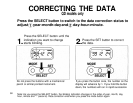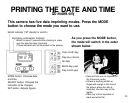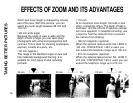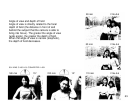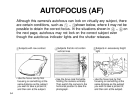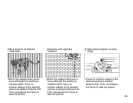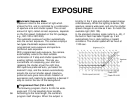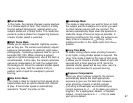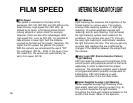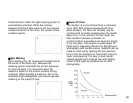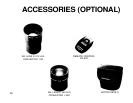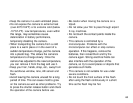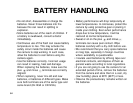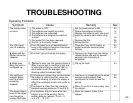
Film Speed
Film speed is indicated on the back of film
packages. ISO 100, ISO 200, and ISO 400 are the
most common. High-speed film (ISO 400), as
implied by its name, is for taking photos of fast-
moving subjects in action shots, for example.
However, there are also other advantages. With
high-speed film, such as ISO 400, it is possible to
take pictures in lower light. And the distance
covered by the flash will be greater. Generally, the
higher the film speed, the grainier the picture.
With this camera, we recommend the use of "DX"
film cartridges: ISO 25 ~ 3200. In the case of non-
DX-coded film, the camera will automatically be
set to film speed ISO 32.
FILM SPEED
METERING THE AMOUNT OF LIGHT
Light Metering
Light metering can measure the brightness of the
framed subject in various ways. This camera
employs three metering systems: (1) ESP light
metering, (2) center-weighted average light
metering, and (3) spot metering. You can select
the light metering system most suitable to the
conditions. The camera also uses TTL (through-
the-lens) light metering to automatically measure
the light that enters the lens. This lets you get very
accurate light readings that are unaffected by
changes in the distance between the subject and
the camera.
Fuzzy Logic ESP (Electro-Selective Pattern)
Light Metering
ESP light metering measures the brightness of the
central portion and peripheral portion of the frame
separately in order to determine the proper
exposure. The calculation program used is based
on programmed data to properly compensate for
backlighting. ESP light metering is used
automatically when in the Full-Auto mode.
Center-Weighted Average Light Metering
Center-weighted average light metering is the
most widely used light metering system (Fig. A).
This system measures the light available
throughout the frame with special emphasis on the
center of the frame. When in the Aperture-
58



